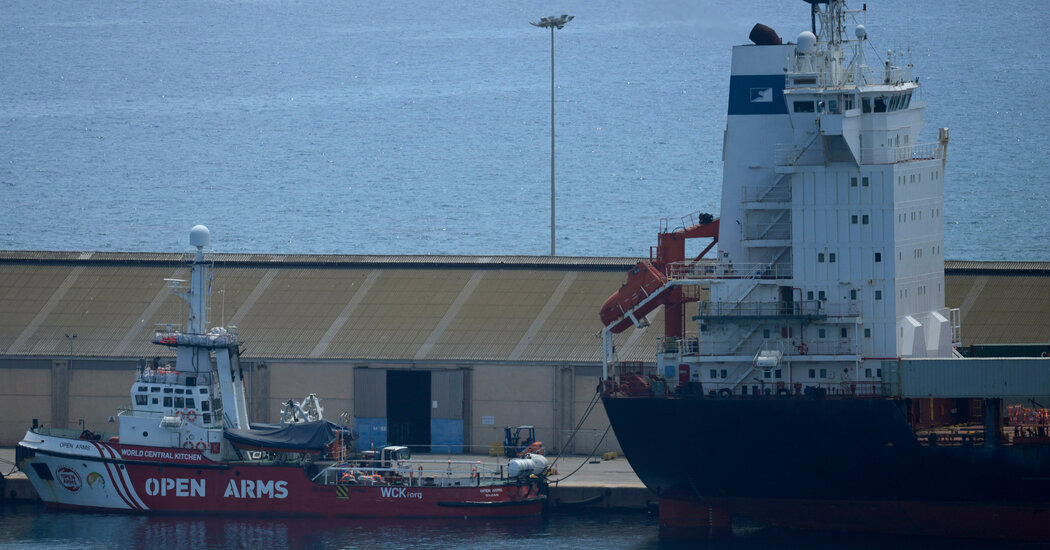An American vessel carrying aid intended for the Gaza has departed from Cyprus, the Pentagon said on Thursday, but the temporary floating pier constructed by the U.S. military is not in place to unload the food and supplies meant for the enclave.
Maj. Gen. Patrick S. Ryder, the Pentagon spokesman, said in a news briefing on Thursday afternoon that while the construction of the floating pier and the causeway has been completed, weather conditions have made it unsafe to actually place them off the coast of Gaza.
General Ryder said that the aid on the vessel, called Sagamore, eventually would be loaded onto another American motor vessel docked at Ashdod, the Roy P. Benavidez. It would take the aid to the floating pier system as soon as it is installed, he said, and then delivered to Gaza.
Sagamore appeared to be anchored at the Israeli port of Ashdod by late Thursday evening, according to VesselFinder, a ship tracking website. For now, the aid for Palestinians, desperately needed, is roughly 20 miles from the nearest Gazan border crossing.
“While not going to provide a specific date, we expect these temporary piers to be put into position in the very near future, pending suitable security and weather conditions,” General Ryder said.
Israel has prevented the construction of Gaza’s own international seaport, prompting the United States and another aid group, the World Central Kitchen, to create their own systems for getting aid into the enclave by sea.
But aid groups and experts have frequently criticized the maritime efforts as costly and complicated ways to deliver aid, citing trucking as a more efficient way to get food inside Gaza. After Israeli strikes killed seven World Central Kitchen workers, the group paused its maritime operations there. The food charity has since said it would restart operations in Gaza with the help of Palestinian aid workers.
More food is needed in Gaza. The director of the World Food Program, Cindy McCain, said recently that some areas are already experiencing a famine.




